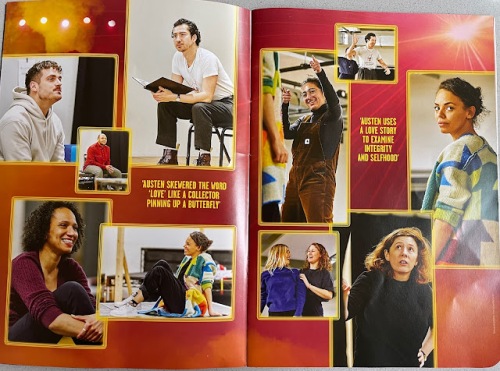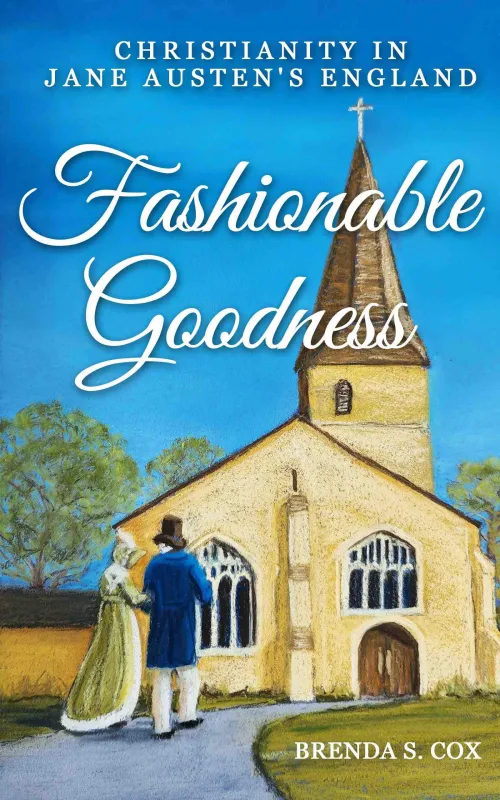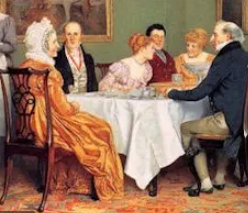In 2021, on the heels of Bridgerton’s success, Netflix announced a new adaptation of Persuasion starring Dakota Johnson as 27-year-old Anne Elliot and Cosmo Jarvis as Captain Wentworth. Henry Golding, given the choice to play either the captain or William Elliot, interestingly chose the latter. Also on board are Richard E. Grant and Suki Waterhouse as, I suppose, Sir Walter Elliot and Elizabeth Elliot, for their roles have not been announced. The other cast members are described at IMBD Persuasion 2022.

Let these exquisite photos of Dakota Johnson, Cosmo Jarvis (t), and Henry Golding (b) tide you over until PERSUASION, a most excitable new film adaptation of Jane Austen’s novel arrives on Netflix in 2022.- NetflixFilm twitter @NetflixFilm
Netflix is betting on a sure thing. In addition to Bridgerton, now in its second season, the powers that be at Netflix must also have noticed Emma 2020’s draw. Before theaters closed during the pandemic, this film drew huge audiences in its opening weeks and enjoyed a steady stream of online viewers during lock down.
Jane Austen’s final novel was published posthumously in 1818, and by many it is considered her finest. This new adaptation is described as a “modern, witty approach.” We’ll see how well this approach matches Austen’s nuanced novel. Carrie Cracknell, a theater director, directs this film. Like Autumn de Wilde (Emma. 2020), she is a first-time film director. The script was written by Ron Bass (Rain Man) and Alice Victoria Winslow (Hot Spot).
Filming began in 2021, and a release date is anticipated this year. The film is now in post production. I’m curious to see how this Persuasion stacks up against two previous adaptations, one in 1995 starring Amanda Root, and in 2007 starring Sally Hawkins. Stay tuned for more news as it comes.

Behind the scenes photos from Twitter, Period Drama World @WorldPeriod
Review of Persuasion by Tony Grant of the theater production, 2022
“PERSUASION (an adaptation of Jane Austen’s novel by Jeff James and James Yeatman) at The Rose Theatre Kingston upon Thames.”
Marilyn and I went to see Persuasion performed at The Rose on Tuesday 8th March. It may be strange but for somebody who professes to know a little bit about Jane Austen it is a long time since I had actually read the novel. I have delved deep into Austen’s novels over the years for quotes and to reference her possible thoughts and ideas about life and love, but I have failed to read the whole of the novels since I first read them all years ago. I have lost sight. I think of what Jane actually wrote. So I read Persuasion again and it wowed me. It is a novel that explores the shifting of society in the early 19th century when much was changing, not just relationships, but class and the industrial world was taking off. It seems apposite that at the moment when the world order is actually changing that The Rose Theatre chose Persuasion to dramatize.
I know that novels, good novels, that is, as you read them again over time and as your own experience of life develops, reveal different levels of understanding. So what did I get from reading Austen’s Persuasion this time round before seeing the performance? The word ,persuasion, is used at times during the novel, but not often. The actual consequences of being persuaded however are felt throughout and drive the novel itself. Anne Elliot was persuaded by not just her father to refuse a marriage proposal to somebody she really loved but Lady Russell, the family friend and Anne’s particular friend, was always the deciding factor in the process of persuading Anne in her youth. Ann seems to have been persuaded into a lot of things in her early life up to the moment of the novel’s action including turning down that offer of marriage from Captain Wentworth eight years previously. Ann is annoyingly hyper neurotic. Is that because she has always been pressured by others? Does she feel she has no control over her life?
Things happen to Anne. She doesn’t make things happen for herself. She analyses every situation, almost every word and look to an intense degree. She always comes out worst. In this novel and in the play she eventually learns to decide for herself. So a major theme has to be how we use people’s advice and how much we should be persuaded when making life decisions for ourselves.

Persuasion program. Image taken by Tony Grant. See more of his images in the link at the bottom of this post.
A novel written in the early 19th century translated into a play set in the 21st century, surely, it can’t be done. They are two worlds so far apart. How can they possibly come together and meet? There are the wise among us that say Austen is universal in her treatment of relationships. This is true when you drill down to what happens in a relationship but all those 18th century rules get in the way to a translation across centuries, surely? Class status, wealth, attitudes to money and the patriarchy and what seems to us blatant misogyny but wasn’t understood as such in the 18th century, how does it all get transferred to the 21st century? When I read Persuasion again finishing the day before we saw the stage adaptation, I couldn’t see any way that it was possible to achieve that transfer from the 18th century to the 21st century.
To finish the review, continue to read how this production achieved its 21st century point of view and how the comedy was resolved on London Calling, Tony’s blog. Note: Tony Grant is a frequent contributor to this blog. His site covers all things England, past and present.








This is exciting!!!
Yes! I’m curious to see how this film compares to the two other adaptations. I vaguely recall seeing a Persuasion adaptation that was filmed in 1971, but it left no impression on me, whereas the more recent ones have. Dakota Johnson is an interesting choice – I’m on the fence until I see her as Anne Elliot.
It will be interesting to see the new version, but I loved the Amanda Root/Ciaran Hinds version SO MUCH that it would have to be pretty spectacular to top it.
I agree, Sharon. Amanda Root played Ann like a wounded bird, but she had backbone. Ciaran Hinds’ passion for his Anne was swoon worthy.
Indeed. I hope for the best for him Sunday .
First, I papolgize for my bad English. I am born in Switzerland but, I follow this site with great pleasure and use for the first time to leave comment on a topic witch I am mostly interested in.
I read Persuasion in different translations and of course in English too. Although, I saw all movies – I don’t know if I like the one with Sally Hawkins better than the earlier with Amanda Root.
For me, it is important that the movie is exactly as Jane Austen described it. Jane needs no adaptions – her stories are so beautiful that I become angry about differences. I can not watch Pride & Prejudice with Keira Knitley – it is not the story I love so much.
And the new Emma – Jane Austen describes Emmas Father as a phlegmatic and anxious person. Bill Nighy is much too lively to be authentic. Though, I fear that the new Persuasion will not be competitive with all other versions.
Brighton was nothing but a great delusion for me. I like it authentic and in that era no colored people were in the higher society. Please, don’t take my words as an affront, but imagine a white person in a film about Nelson Mandela and his entourage. I just was confused about Denzel Washington as prince in the movie much ado about nothing. He indeed is an impressing person but in the time, when the book is playing, there were no colored people in such a position.
I hoe I offended no-one with my words. For me, and I mean and live it – all beings (human, animal or plants) are equal in their worthiness.
Have a nice evening!
Thank you for stopping by, Daniela. There were black people living in England during Austen’s day. From 15,000 to 20,000 were estimated to live in London in the 1760’s. I’d like to recommend Belle: The Slave Daughter and the Lord Chief Justice by Paula Byrne. A film was made from this book. Belle was adopted by her father’s brother, William Murray, Lord Chief Justice and later 1st Earl of Mansfield. He was one of the men responsible for the abolition of slavery in England in 1807. Brenda Cox wrote an important post for this blog entitled Resources on Black People in Jane Austen’s England.
Yes, that is true, I read the the book and saw the film and enjoyed both. We can see that it was very special – Belle was not allowed to eat with the family when there were guests in the house. Not, because she was less worthy in the eyes of her parents but, because her parents didn’t want to offend their guests. For this reason, they accepted to hurt their beloved niece.
This means to me that colored people were not accepted in the higher society of the regency era. Fortunately, this is not anymore the same today – almost not in my society.
There were people of color in higher society in the Regency era. Plus it’s FICTION.
I came to know of this site after having read books by Stephanie Barron and I am grateful for having found the website since I long wanted to learn of good things about Jane, not crudity to do with the times as interpreted. Thank you for the Jane’s society’s in Vermont et al.
Find my blog at teawithainee.wordpress.com/ and my other blog mcaineecbeland at msaineecbeland.blogspot.com
Thank you for your comments, Ainee. I added your second blog link to your comment. Your Tea with Ainee blog is lovely.
Sounds like an entertaining play.
d
Daniela, you write, “For me, it is important that the movie is exactly as Jane Austen described it.” That is impossible. Everything is an interpretation. We couldn’t even recreate yesterday if we wanted to. As for, “I like it authentic and in that era no coloured people were in the higher society,” that’s not quite true and also, sadly, this POV is denying some people their ability to bring to a part.
Dear Tony
Actually, it is possible to create a movie second a book ad doing that most authentically. A good example for that is Pride and Prejudice with Jennifer Ehle and Colin Firth. As much as I love Emma Thompson and Kate Winslet – the movie Sense and sensibility is not half as good as the one with Hattie Morahan and Charity Wakefield – they do not follow the scenes described by Jane Austen which makes the book so lovely and authentic. Don’t you agree with me?
I give you right, every person has its own imaginations when reading a book. But a sister more or less indeed makes a difference.
Let us come to the topic colored people: I know very well that my descriptions may seem bigheaded. But please, do me justice, with all my heard I can assure you that every being on this earth, may it be an animal, a plant or a human being – in my eyes everything with a soul is equal valued. I have four nieces myself who are colored and I love them as well as all the others.
But, history has been reality and so was existing apartheid. This is a fact which brought so much suffering in our word. I think it is not good to deny that fact and to do as when these ugly thing would never had happened.
But there were another thing, which made me stop looking Brighton until the end. To me it seemed as they at the end reduced all to a hopping from bed to bed….
I agree, some things, ” hopping from bed to bed,”for instance, is meant to attract more viewers and although people of that timer obviously had sex, too much of it can be made! Ha! Ha!
As far as sex goes in literature these days there are some excellent new women authors who are writing about authentic sexual experiences good and bad in a real way, not salacious at all. Good sex education for us all. Perhaps we are going to disagree over the fact that everybody of any colour or race can interpret Jane Austen. All the best, Tony